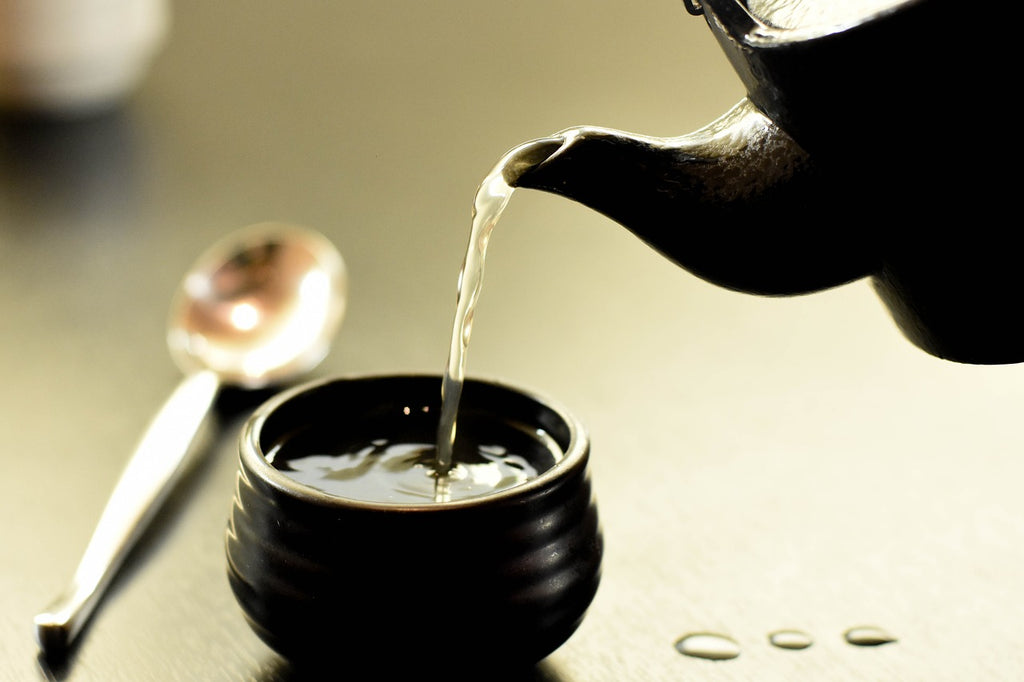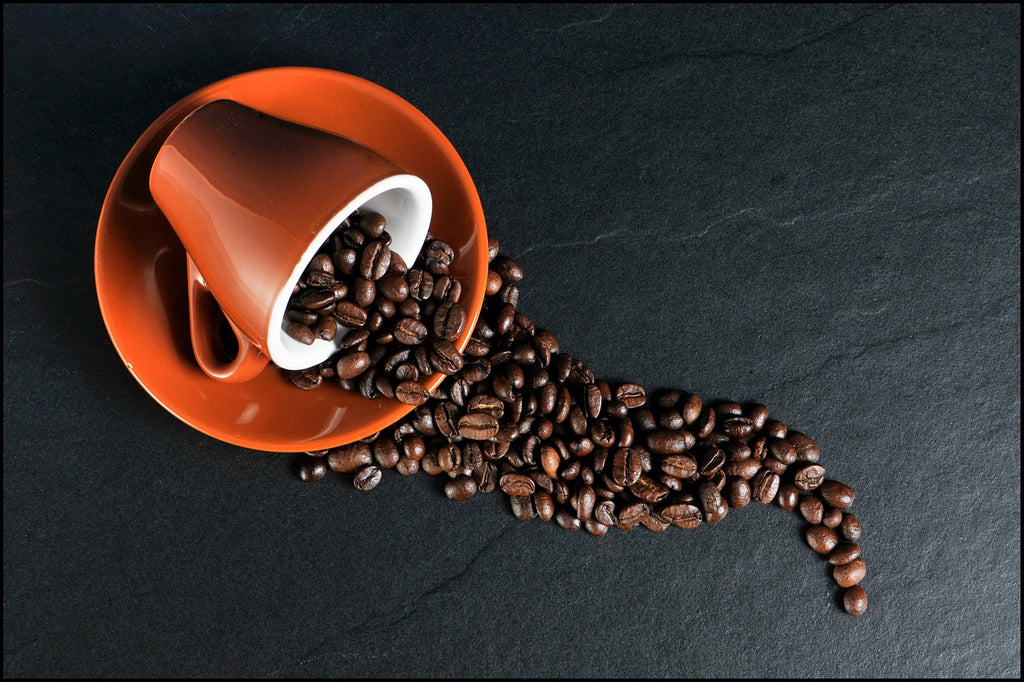Tea vs. Coffee: Comparing The Health Benefits

In the age-old battle between tea and coffee, drinkers from both camps faithfully defend their beverage of choice. Coffee drinkers tout the much-needed boost of energy their brew gives them in the morning, whereas tea drinkers say opt for an infusion for its ability to help them wind down. Both are fantastic, but does one have a clear health advantage over the other? The short answer? It’s pretty challenging to declare categorically that one drink is better than the other because isolating their ingredients and analyzing how they affect your diet and other body systems is almost impossible. We can, however, take a look at what each beverage has to offer so you can make the best choice.
Health Benefits of Tea

You probably already know that tea tastes great, but it also packs an impressive punch in the health benefits department. Tea has so many benefits that compiling a complete list would be rather extensive, but here are a few of the most significant ones.
Antioxidants
There’s a lot of talk about antioxidants these days, and with good reason. These substances do our body a world of good by preventing or staving off certain types of cell damage. Cell damage leads to cancer, which is why antioxidants are touted for their anti-cancer properties. Tea drinkers will be pleased to know that the cup they’re drinking is packed full of antioxidants, which, besides the potential cancer prevention benefits, are also fantastic for promoting general health. Coffee contains a higher number of antioxidants per serving, but because you can have more cups of tea throughout the day, tea is a better source of antioxidants.
Bone Protection
Another fantastic benefit of tea is that it may protect its drinker’s bones. Those that consume tea regularly have higher bone density and lower risk for fractures, as well as lower rates of bone loss. Tea’s bone protection benefits may be due to high levels of catechins, which are a natural antioxidant that fights cell damage.
Weight Loss
Tea, and green tea especially is known to increase metabolism and kick start fat loss. The antioxidant EGCG may play a role in weight loss by speeding up fat oxidation, which in turn helps the liver burn and eliminate fat more effectively. The caffeine in tea also gives you energy, which allows you to be more energetic in workouts and thus burn more calories during your session. The caveat here is that to reap tea’s weight loss benefits, it’s best to drink it plain. Loading your tea with milk and sugar will eradicate any potential fat burning effect, so make sure to enjoy it as is. Try one of our natural blends, all of which taste amazing on their own.
Heart Health
Flavonoids are natural substances that favor heart health. Regular consumption of flavonoids is linked to a decreased risk for stroke and heart disease. This decreased risk is due to the reduction of specific risk factors like high blood pressure and cholesterol. Next time you enjoy a cup of tea, remember that you’re also getting the benefits of the flavonoids present in tea.
Health Benefits of Coffee

Tea has some impressive health benefits, but coffee has others that are equally as extraordinary. And just like with tea, we could dedicate thousands of words to creating an exhaustive list of the advantages to coffee. Here are a few of the most noteworthy.
Increased Performance
There’s a reason people love to have coffee in the morning. Not only does it wake you up, but it also helps your neurons fire and increases both physical and mental activity levels. Additionally, coffee increases brain function in various ways, like improved memory, reaction time, mood, and vigilance. As if the mental benefits weren’t enough (who couldn’t use an extra boost at work?), the caffeine in coffee also provides extra energy at the gym. Like tea, it can help you get more out of your workouts.
Coffee May Prevent Type 2 Diabetes
Researchers haven’t figured out exactly why, but coffee has been shown to reduce the risk of type 2 diabetes. And besides lowering the possibilities of suffering from this chronic disease, coffee consumption may also prevent other diseases like hypertension and liver disease.
Provides Essential Nutrients
As you sip your daily cup of coffee, know that your favorite brew is offering you a dose of essential nutrients. Coffee contains the following essential micronutrients:
- Sodium
- Potassium
- Magnesium
- Manganese
- Riboflavin
- Niacin
It’s important to mention that the amount of these micronutrients in a cup of coffee accounts for a relatively low percentage of the daily-recommended intake, but these numbers become more significant with higher coffee consumption. Coffee drinkers that have multiple cups per day end up covering a good portion of their daily recommended intake this way.
Fat Burning Properties
If you’re looking to shed some pounds, you’ll be happy to know that caffeine is proven to help fat burn. Studies show that the caffeine in coffee boosts the body’s metabolic rate, which is beneficial for weight loss.
What About Coffee and Cancer?
You may recall a California judge who made a splash with a ruling that coffee companies must put cancer warnings on their products, making many doubt whether or not to abandon their favorite drink. The verdict was based on the presence of acrylamide, a compound in roasted coffee beans associated with cancer in rats. However, there is no reliable evidence showing coffee is related to cancer. The opposite may be true; coffee may actually reduce your risk for certain cancers. The WHO International Agency for Research on Cancer has since removed coffee from its suspected carcinogens list, so you can rest assured that your beloved morning roast will not cause cancer.
The Downside to Both: Caffeine
Both tea and coffee contain caffeine, a stimulant that acts on the nervous system and makes you feel more awake and active. The right amount is beneficial, but there are risks associated with caffeine, the most common of which is overconsumption. Ask anyone who drinks coffee, and they’ve likely experienced the effects of overconsumption, otherwise known as the coffee jitters. Hyperactivity, tachycardia, anxiety, and sweating are just some of the unpleasant symptoms. The amount of caffeine needed to produce these effects varies from person to person, with some people being naturally more sensitive to caffeine, but the USDA recommends consuming no more than 400 milligrams per day. Coffee jitters are the biggest downside, but another caffeine risk is difficulty falling asleep, common in those who have caffeine too late in the day. Some people can have caffeine at any time of day without it affecting their sleep patterns, but the average individual should stop consuming it somewhere around seven hours from when they plan to go to bed.
Tea vs. Coffee: Caffeine Content
Both tea and coffee contain caffeine, but the content does vary between them, and it also varies according to how you brew it. The general caffeine content in tea and coffee is:
- Coffee: 95 milligrams
- Green tea: 28 milligrams
- Black tea: 47 milligrams
As you can see, there’s not a huge difference, but coffee does provide a higher dose of caffeine. You can drink more tea before feeling adverse caffeine effects (around 4-5 cups per day), and tea generally gives you a slower released burst of energy than coffee, which provides you with more of a jolt. For this reason, some people prefer tea.
The Bottom Line
Each side would love to be able to declare their drink the winner, but neither stands head and shoulders above the other. In their natural form, with no extras like sugar or cream, both tea and coffee provide health benefits and are safe to drink, as long as you’re careful with the caffeine content. The bottom line? Deciding whether to drink tea or coffee ultimately comes down to a matter of personal preference.
Subscribe to our Newsletter
Subscribe to our newsletter and get 10% off your first purchase
 Instagram
Instagram



